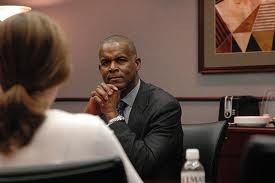Saturday March 8, 2014 at 8:00 am
The Presentation – “How to Leverage the Immediacy of the Telephone in Your Job Search”
It may be over 100 years old, but the telephone is a very timely tool to change the course of your current job search. Topics that will be covered include doing preliminary company research, identifying advocates, the hidden job market, follow-up, gaining a face-to-face meeting, and following-up. An interactive Speaking and Listening techniques self-evaluation will be conducted.
About the speaker: Ken Eisenberg is an Industrial Marketing entrepreneur, having created the specialized Industrial Marketing Associates LLC more than 25 years ago to assist manufacturers create new sales opportunities in niche market segments. Industrial Marketing Associates, LLC relies upon our expert consulting associates in marketing, lead generation, web design, advertising, corporate communications, social media, telephone skills training, career coaching, and networking, to provide a complete solution to your marketing challenges.
Most recently Ken leveraged the advantages of Salesforce.com CRM with implementations to support sales, marketing and customer service teams.
Ken commented, “I have learned a great deal from my clients, and industry expert mentors. These include marketing visionary and author, Ray Vitullo of Raymond-Nicholas Advertising and Gerry Lind of Green, Lind & McNulty Advertising.”
Ken pioneered the concept and implementation of strategically integrating telemarketing, advertising, direct mail, publicity, and database marketing to realize the benefits of their combined synergism in “Strategic Marketing”. Applications have been implemented at various stages in the sales process of developing and selling a new account. These have included everything from primary market research to dormant account reactivation, inquiry qualification, quote follow-up, marginal account handling, field sales support, new product introduction, profiling, prospecting, internet/database marketing, and Customer Relationship Marketing. Clients are both small firms, and large manufacturing and service companies, which produce a wide range of products and services. Ken offers expert consulting associates in marketing, lead generation, advertising, telephone skills training, and CRM to provide a complete solution to your marketing challenges.
Meeting Information:
Networking begins at 7:30 am, meeting starts promptly at 8:00 am.
There is a $10 fee at the door to cover the cost of the room.
Be sure to tell your friends and bring them along. Be a part of our growing network of Job Seekers, Hiring Managers, Recruiters, Career Coaches, and people who want to be able to help themselves and each other.
Event Location:
Days Hotel Conference Center
195 Rt. 18 South, East Brunswick, NJ 08816
732-828-6900
The Breakfast Club NJ – 10 Points for Good Member Citizenship
1) Attend meetings regularly to keep group strong and help pay back to others (meeting logistics on our website www.thebreakfastclubnj.com)
2) Keep anti-virus on your machine up to date and run scan regularly
3) Review messages and if request for assistance please help whenever possible
4) Join groups linked in group and connect to other members directly (questions see Gerry Peyton)
5) Join groups Facebook group and connect to other members directly (questions see Adrienne Roman)
6) Join groups twitter account (questions see George Pace)
7) If you run across someone in transition invite them to join our group and sponsor them through process (details on our website www.thebreakfastclubnj.com)
8) Sunday mornings listen to our radio show, “Your Career Is Calling”, at 8am ET either on radio at 107.7 or via internet 24/7 live or on demand at www.1077thebronc.com (as this is a call in show your calls help make it successful)
9) If you are in transition put your elevator pitch in writing to group, ask for help with job search issues or connecting to people at target companies, regularly post job opportunities (from email you joined the group – send email to thebreakfastclubnj@yahoogroups.com)
10) Help fellow members whenever possible
Information on “The Breakfast Club NJ”: (www.thebreakfastclubnj.com)
There is information below on the location, other information, etc. There is a meeting fee of $10 to help us cover the cost of the hotel conference room for the meeting.
Go to http://box5691.temp.domains/~bobhacke/thebreakfastclubnj for more information and how to join the Yahoo group. You can join the yahoo group at any time; you do not need to have attended a meeting. You can also attend meetings at any time without having joined the yahoo group.
If you have any questions, please let me know (brian.mecca@yahoo.com) or send an email to Info@thebreakfastclubnj.com
We look forward to seeing everyone let’s make this a great meeting for our members that are in transition and welcome those that have landed
Meeting Format:
7:30 to 8:00 – Registration & Open Networking
8:00 to 8:15 – Welcome and housekeeping
8:15 to 9:15 – Presentation by the guest speaker – Limited to 60 minutes
9:15 to 10:15 – Elevator Pitch – 30 Seconds about yourself, who you are, what you are looking for, target companies (3-4), how we can help you, how you can help others. Follow the rule of the Three B’s of Public Speaking: Be informative; Be brief; Be seated.
10:15 until you choose to leave – Open Networking, follow up with people you are interested in meeting following their elevator pitch, exchange business cards, peruse the library, arrange follow up meetings, etc.
1 – Make sure you come with the 30 second elevator pitch – honed – including your targeted companies, your value proposition, etc.
2 – If you are not already a member of our linked in and Facebook groups please join
3 – Once linked to our groups – link to each other – a strong network is a vital component to a successful job search
4 – If you are a member and new to transition send a brief message to the group (from the email you joined the breakfast club from) thebreakfastclubnj@yahoogroups.com introducing yourself – and what companies you are targeting – we have 2500+ members that will respond with help where they can






